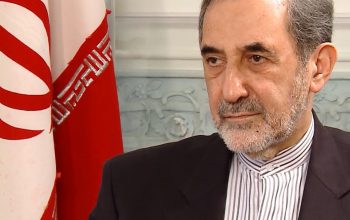Prime Minister Nikol Pashinyan is reportedly preparing to hand the United States exclusive control over a strategically sensitive transit corridor through Armenia’s Syunik province — a route long demanded by Azerbaijan — during a trilateral meeting with U.S. President Donald Trump and Azerbaijani President Ilham Aliyev scheduled for Friday in Washington.
According to a Thursday report by Reuters citing unnamed U.S. officials, the three leaders are expected to sign a “framework agreement” at the White House that Washington claims will create a “concrete pathway to peace.” As part of the deal, Armenia would grant the U.S. “exclusive special development rights for an extended period” over the corridor, which will reportedly be branded the Trump Route for International Peace and Prosperity.
The report says the route would remain nominally under Armenian law, but the U.S. would sublease it to a private consortium for infrastructure and management. One American official told Reuters the move would “unlock the region and avert further hostilities through commercial means.”
Pashinyan first revealed the U.S.-backed transit proposal at a July 16 press conference in Yerevan, voicing readiness to accept it. He compared “outsourcing” management of the corridor — which would connect mainland Azerbaijan with its Nakhichevan exclave — to existing arrangements where foreign companies run Armenia’s main airport, water networks, and railway.
However, opposition figures dismissed that comparison as misleading. Unlike Zvartnots Airport, they note, the proposed Syunik corridor is a land route whose management and security could have direct consequences for Armenia’s sovereignty and control over its borders. Armenian Revolutionary Federation (Dashnaktsutyun) representative Ishkhan Saghatelian warned on July 17 that his party will “fight to prevent such an outcome together with our people,” calling the plan an unacceptable step toward an extraterritorial corridor favored by Baku and Ankara.
Critics also caution that U.S. control over such a corridor would place Armenia in open confrontation with its traditional allies, Russia and Iran. Both Moscow and Tehran publicly rejected Washington’s proposals late last month. Iran, whose only border with Armenia runs through Syunik, has repeatedly warned against any arrangement resembling the so-called “Zangezur corridor.”
Ali Akbar Velayati, senior adviser to Iran’s Supreme Leader Ayatollah Ali Khamenei, accused the U.S. and “pan-Turkist movements” of seeking to “sever Iran’s link with the Caucasus and impose a land blockade on Iran and Russia in the region’s south.” He pledged that Tehran would pursue a “policy of active prevention” to thwart such designs.
Meanwhile, there is no sign that Friday’s meeting will produce a long-delayed Armenian-Azerbaijani peace treaty. The document was reportedly finalized in March, but Baku has conditioned its signing on constitutional changes in Armenia and the dissolution of the OSCE Minsk Group — demands widely seen in Yerevan as additional concessions.
Reuters also claimed that Pashinyan and Aliyev will sign documents at the White House requesting the Minsk Group’s dissolution. If confirmed, this would mark yet another unilateral retreat from Armenia’s diplomatic leverage in the Karabakh conflict, further deepening concerns among those who view the Syunik corridor deal as a dangerous erosion of national sovereignty.




